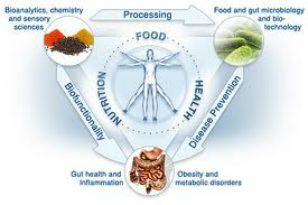The Body Chemist - Nutritional Therapy
Nutritional Therapy

Nutritional therapy applies principles derived from current biochemical and physiological scientific knowledge for the purpose of promoting optimal health and wellbeing whilst recognising biochemical individuality. The nutritional therapist assesses a person’s nutritional needs to achieve normal physiological function. This means the maintenance of homeostasis, a position of wellbeing we all seek, but many fail to achieve.
Assessment includes the use of appropriate tests and observations, such as case history, anthropomorphic measurements, physical signs, laboratory tests, and nutrition/lifestyle analysis to determine an educational nutrition programme. Assessment also provides the basis for referral to a licensed physician, or other healthcare professional if necessary.
Recommended educational protocols may include, among other information, nutrition / lifestyle modification, nutritive supplementation, understanding of physiological / biochemical pathways, and evoking of regenerative processes. The use of food and lifestyle changes is recognised as a principle component of achieving and maintaining optimal levels of health. Research is increasingly recognising that foods have nutritive value beyond simply caloric or macronutrient quantity and quality. A qualified nutritional therapist will work with you to achieve the best food selection for your personal needs.
Choosing a Practitioner
It is important to choose a qualified nutritional therapist who has undertaken all the necessary training to understand the theory and practice of nutritional therapy. You can check whether a nutritional therapist is registered with the British Association for Applied Nutrition and Nutritional Therapy (BANT) by searching the register at www.bant.org.uk.
By choosing nutritional therapists registered with BANT, you can be confident that they are properly trained, qualified and insured. You can find registration details for The Body Chemist at the BANT website.
Go to The Body Chemist
for Nutritional Therapy
